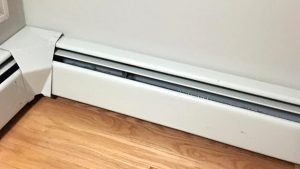
Most homeowners don’t realize this but heating and cooling systems contribute around 70% of the annual energy consumption and electricity bills. This makes it essential to maintain your heating and cooling system and equipment on an annual basis, regardless of the type of HVAC system you have. Whether it be a forced air furnace, central air, geothermal heat pump or any other HVAC unit, you will keep the repairman away if you maintain your system on a regular basis.
Another way to lower your utility costs is to install an energy efficient system. However, this alone will not have as great an impact on your electricity bills as using a whole-house approach.
If you properly insulate your home, caulk and weatherstrip doors and windows, manage your thermostat settings, buy the most energy efficient system on the market, and regularly maintain, your can reduce your utility expenses by 30%. This is a significant cost savings. Not to mention doing your part to reduce carbon footprints and environmental emissions.
Some heating tips include: 1) Programming your thermostat so that it lowers at night and when you leave the house; 2) Clean or replace your furnace filters monthly; and 3) Clean registers and baseboard heaters as required and make sure they’re not blocked by furniture, carpeting, or drapes.
Household Heating Systems: Although several different types of fuels are available to heat our homes, nearly half of us use natural gas. | Source: Buildings Energy Data Book 2011, 2.1.1 Residential Primary Energy Consumption, by Year and Fuel Type (Quadrillion Btu and Percent of Total).
Heating your home uses more energy and costs more money than any other system in your home — typically making up about 42% of your utility bill.
Read full article at Energy.gov.
Hot Water Baseboard System is a system where heat is given directly or supplied directly from the floor to panels to walls to ceilings. This system would rely basically on the transfer of radiant heat which is the distribution of heat from where the system spreads heat to people and other things such as furniture that is surrounded by the system and more importantly energy is not wasted through radiant heating ducts.
It is advantageous because of its efficiency. Energy efficient HVAC systems have proven to be very beneficial not only months after installation but also in the long run. It also spares us the discomfort of having to hear annoying noises from the engine, and it has a closer temperature control.
Similar to radiant heat, this system uses hot water heated by a boiler to heat a space by a combination of radiation and convection.
- Hot water heated by boiler and piped to “fin-tube” baseboard units mounted along walls. The fins increase the surface area of heat dissipation making the unit more efficient.
- Air is distributed by convection as air rises and is heated by the baseboard unit.
Fuel Sources
- Boiler may be fueled by natural gas, propane, oil or electricity
Despite the many benefits that hydronic heaters have given, there are still disadvantages that come with its advanced technology. You cannot block radiant heaters. which can provide a challenge in how your arrange your furniture and design your drapes. In addition, when you increase the temperature, it takes a while before you feel the increased warmth. These disadvantages, however, must not get in the way of the benefits baseboard heaters provide us.
To know more about Electric Hot Water Baseboard Boiler System Description, check this out:
